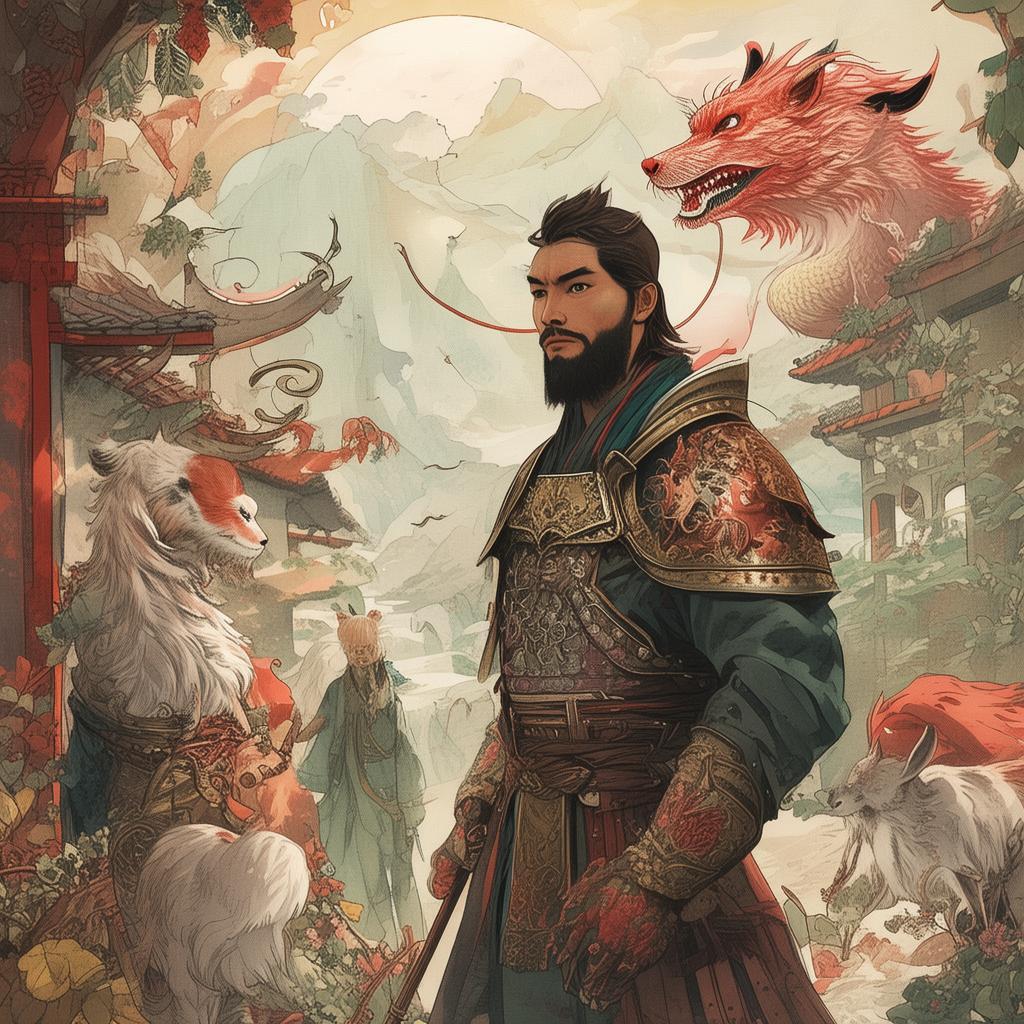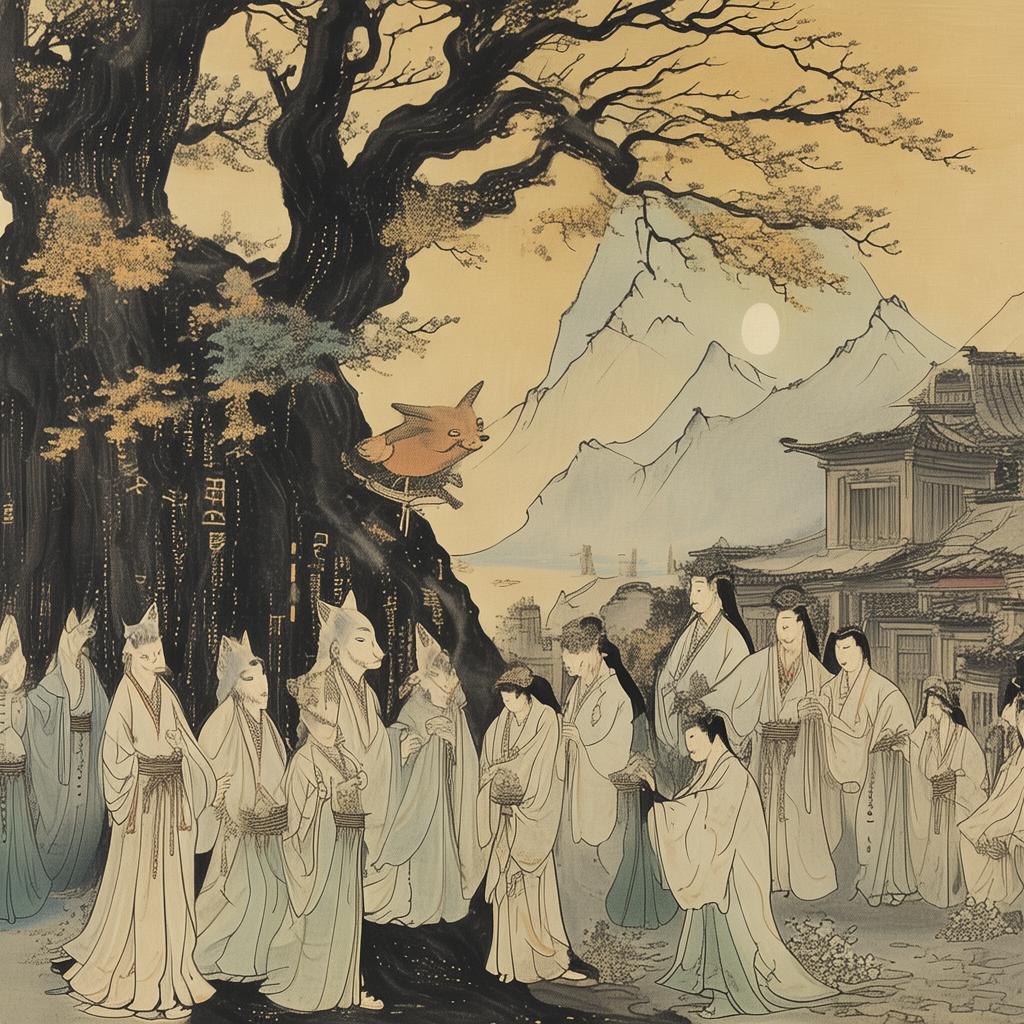The Melody of the Lost Soul
In the quaint village of Lushan, nestled between rolling hills and whispering rivers, there was a legend whispered among the villagers—a legend that the soul of a musician named Yun, who had once lived there, was trapped within the melodies of a forgotten symphony. The symphony, known as "The Song Yun," was said to contain the essence of Yun's soul, and it was believed that only a pure heart could unlock its secrets.
Amidst the bustling streets, where the laughter of children mingled with the clatter of street vendors, there lived a young musician named Ling. She was known for her extraordinary talent, her fingers dancing across the strings of her guzheng with a grace that seemed to be guided by an unseen hand. Yet, despite her skill, there was a void within her that no music could fill.
One evening, as the sun dipped below the horizon, casting a golden glow over the village, Ling stumbled upon an old, dusty book in the attic of her grandmother's house. The book, "The Song Yun's Symphony: A Musical Canvas of the Soul," was filled with intricate musical scores and cryptic notes. As she leafed through the pages, she felt a strange pull, as if the symphony itself was calling to her.
Ling's curiosity was piqued. She had heard the legend of Yun, the lost musician, but she never thought it would come to life in such a tangible form. She decided to play the symphony, hoping to find some solace in the melodies that had once belonged to someone else.
As she began to play, the air around her seemed to thicken, and the notes of the guzheng seemed to take on a life of their own. The music was haunting, filled with a depth that Ling had never encountered before. She felt as though she were being transported to another world, a world where love and loss intertwined in a dance that defied time.
The first movement of the symphony, "The Lament of Yun," was a sorrowful melody that spoke of a love lost to betrayal. Ling could almost hear Yun's heartbreak as each note was struck. The second movement, "The Quest for Redemption," was a faster, more intense piece that depicted Yun's journey to find forgiveness and peace.
As the symphony progressed, Ling found herself drawn deeper into Yun's story. She learned of Yun's love for a woman named Mei, who was the daughter of a powerful and greedy man. Yun's love was pure and unwavering, but Mei's father, seeing Yun's wealth and status, sought to marry her for his own gain. In a fit of rage, he had Yun killed, and Mei was forced to marry him.
The symphony reached its climax with the final movement, "The Resurrection of the Soul." It was a powerful piece that depicted Yun's struggle to overcome his own death and find a way to save Mei from her father's clutches. In the end, Yun was able to sacrifice himself, allowing Mei to live a life of freedom and love.

As the final note of the symphony resonated through the room, Ling felt a profound sense of release. She had not only heard Yun's story but had also experienced it. The void within her had been filled, and she realized that the symphony was not just a musical piece but a testament to the enduring power of love and sacrifice.
Ling knew that she had to share Yun's story with the world. She began to perform the symphony in the village, and soon, the legend of Yun and Mei spread far and wide. People from all over came to hear the symphony, and each one left with a renewed sense of hope and a deeper understanding of the human spirit.
The village of Lushan became a place of pilgrimage for those seeking solace and inspiration. And in the heart of the village, where the old, dusty book had once been found, there was a new monument—a guzheng, its strings strung with the same notes that had once filled the air with the music of Yun's soul.
The story of Yun and Mei, told through the symphony, lived on, a testament to the enduring power of love and the transformative power of music. And in the quiet of the night, when the symphony played once more, it was as if Yun's soul was once again walking the streets of Lushan, free at last.
✨ Original Statement ✨
All articles published on this website (including but not limited to text, images, videos, and other content) are original or authorized for reposting and are protected by relevant laws. Without the explicit written permission of this website, no individual or organization may copy, modify, repost, or use the content for commercial purposes.
If you need to quote or cooperate, please contact this site for authorization. We reserve the right to pursue legal responsibility for any unauthorized use.
Hereby declared.









